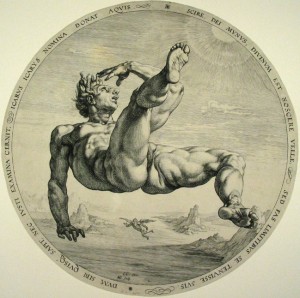
——————-
That rip-snorting bull? Old hat. Wall Street has a new symbol of wild optimism: a rocket blasting off merrily into space, presumably taking the Dow on a gravity-free ride into the heavens.
Artdaily.org reports that sculptors Mark and Diane Weisbeck have created a new, “21st century symbol for the Bull Market,” 13 feet tall and made of stainless steel.
 Nobody seems to remember anymore what the fabled bull and bear stand for, the story comments, and they got that right: If investors and manipulators hadn’t conveniently forgot that the bull periodically and inevitably transforms into a bear, we wouldn’t be in the mess we’re in now. Optimism is a lovely thing, but not when it doesn’t have its feet on the ground.
Nobody seems to remember anymore what the fabled bull and bear stand for, the story comments, and they got that right: If investors and manipulators hadn’t conveniently forgot that the bull periodically and inevitably transforms into a bear, we wouldn’t be in the mess we’re in now. Optimism is a lovely thing, but not when it doesn’t have its feet on the ground.
I’m going to miss the bull and bear. They had a sense of balance, of yin and yang. And they were rooted: They had a living, breathing physicality that offered the comforting illusion that the marketplace was based on some sort of reality. This rocket ship? I don’t feel the weight of gravity in the image. And I want a sense that what goes up will also come down.
So here’s an idea. If we’re going to have a new bull, OK. But the Weisbecks need to give us a new bear, too. Under the circumstances, I suggest a 13-foot-tall stainless steel Icarus.
 Today I plucked
Today I plucked